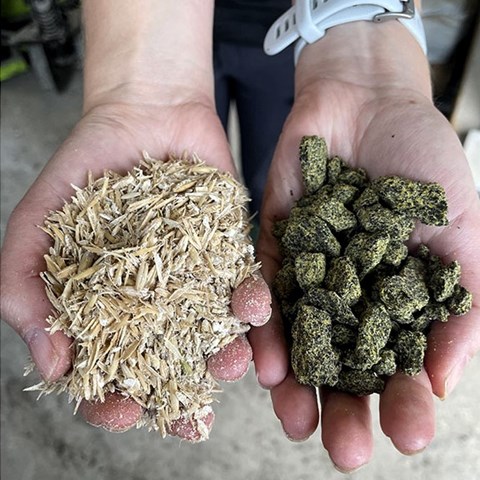Facts:
Read more about Basreg:
Basreg - database for production data cattle, pig and poultry

Does a methane-inhibiting feed additive work better when cows are fed with high-fat Swedish oats? That's what Mohammad Ramin's research team at SLU in Umeå aims to find out.
The additive Bovaer (DSM, Switzerland) with the active substance 3-nitrooxypropanol is a commercial product used by farmers in Sweden to reduce methane emissions from dairy cows. However, no study has been conducted in Sweden using Bovaer to determine the actual impact of the additive with measurements of gases. Measurements have been carried out in other countries with different conditions.
"We are now using SLU's Basreg tool to manage data. It is a new database system for us. All data collected in the barn can be easily extracted and processed. We should have the first results by January," says Petra Fant, a participating researcher in the project.
The cows in the experiment will be fed eight different diets. They will test two energy sources: barley and a high-fat oat variety called Fatima (Lantmännen), two protein sources: rapeseed meal and cold-pressed rapeseed cake. The cows will also test the diets with or without the addition of Bovaer.
"The idea is to evaluate the effects of fat in combination with Bovaer on greenhouse gas emissions, milk quality, and the energy balance of dairy cows," says Mohammad Ramin.
Twenty-four dairy cows of the Swedish Red Breed are ready for the experiment in the Röbäcksdalen research barn in Umeå. The experiment will last for four months.
The oat variety Fatima contains between ten and eleven percent fat, while barley contains two to three percent fat.
The project is a continuation of Petra Fant's research, which shows that oats reduce methane emissions from dairy cows compared to barley.
Read more about Basreg:
Basreg - database for production data cattle, pig and poultry